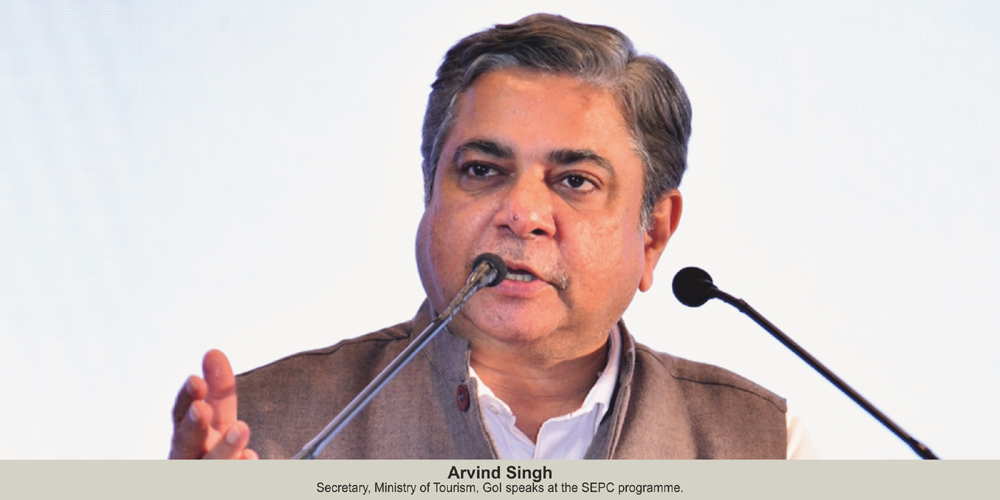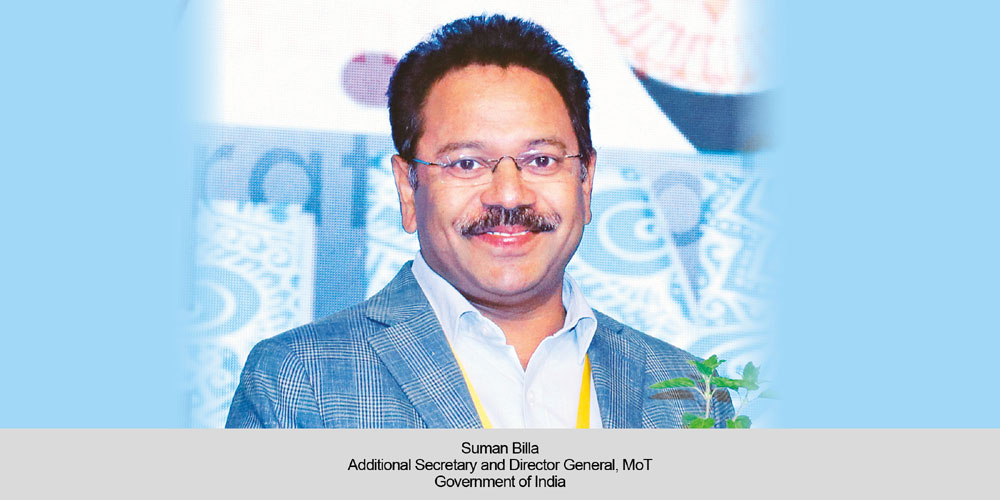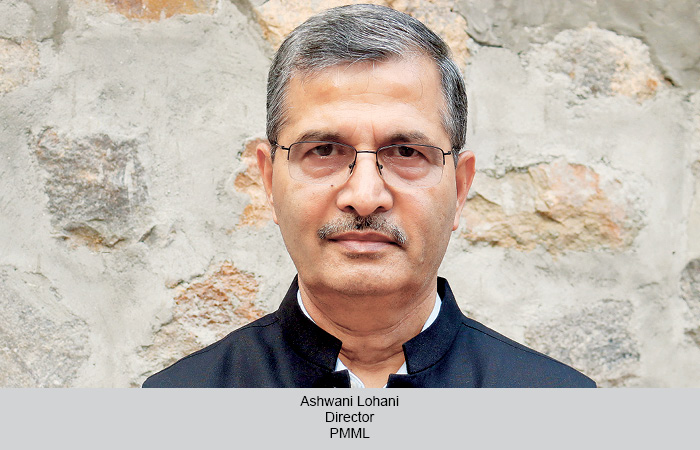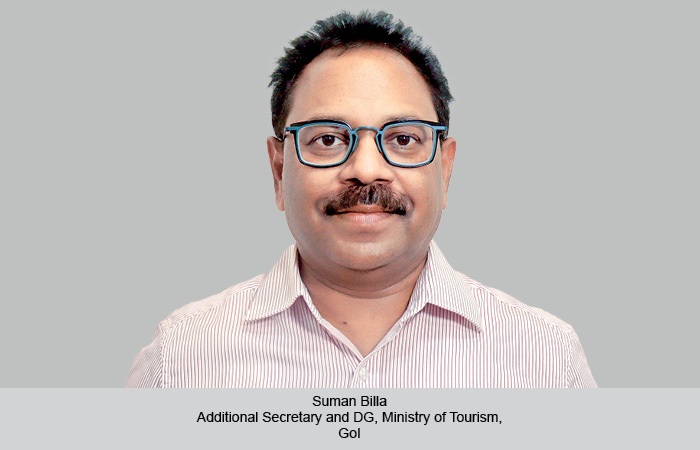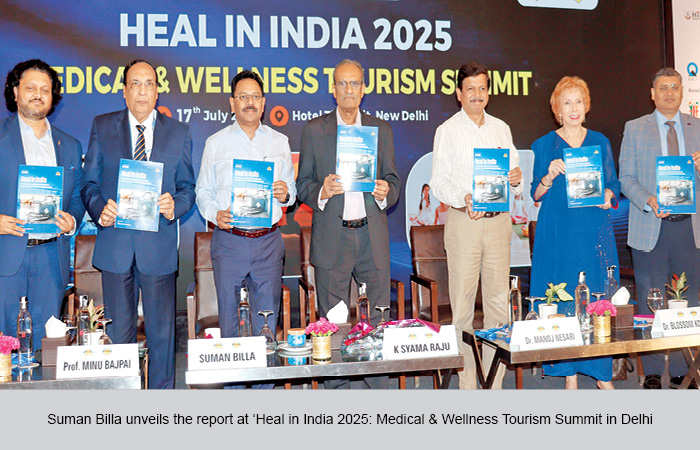Arvind Singh, Secretary, Ministry of Tourism (MOT), Government of India, has announced that a National Tourism Board will be set up soon to plan the Ministry’s overseas promotions, while the National Tourism Policy is under consultation and will soon come into existence.
Nisha Verma
Arvind Singh, Secretary, Ministry of Tourism (MOT), Government of India, said that a National Tourism Board will be set up “soon” for the Ministry’s overseas promotion. “We have proposed the National Tourism Advisory Board, which will be chaired by Union Minister of Tourism, with all the tourism ministers of the states, representatives of the ministries and industry stakeholders. This board will review the implementation of the policy, and implementation unit will provide the secretarial support to this board,” said Singh, while addressing a Hospitality and Tourism Conclave, organised recently by the Services Export Promotions Council (SEPC).
Singh spoke on various subjects at the programme with focus on the upcoming tourism policy. “A separate National Tourism Board will be set up, which will be looking at the promotion activities. It will be manned by CEOs and will be funded by the public, but we will have industry stakeholders who would advise us. This board will coordinate with the international missions. Till the board is operational, we will be doing business as usual, but this board should start functioning very soon,” he shared.
Green shoots
Earlier, he started his address by citing the prediction by World Travel and Trade Council, which said that the travel trade industry would normalise to pre-COVID levels by March 2023 and between 2023 and 2030, the travel economy would grow at a rate of 5.2 per cent globally against the global economic growth of 2.3 per cent. “They expected the growth of the travel economy to be almost double that of the global economic growth. Also, they predicted that one in three new jobs that will be created globally, will be created in the travel sector. We are seeing signs of revival in both domestic tourism, hospitality, and weddings,” he said.
National tourism policy
The MOT has gone ahead with formulating the National Tourism Policy, which has been in the limbo for almost two decades, Singh said. “We have a vision that in 2047, tourism should be a $1 trillion sector in the country. There is a need for a new policy, as 20 years have elapsed and the country is at a different stage. We need to have a relook at our strategies on how we project India as a major tourist destination, if we are growing as an economy.”
He shared that the policy has been drafted and is at consultation stage. “We are consulting with other ministries and have taken the recommendations from Niti Aayog; global best practices from organisations such as UNWTO and carried out a detailed situational analysis, including impact due to COVID-19, future projections for tourism sector with a vision for India in 2047; multiple rounds of consultations and feedback from central Ministries, state governments and industry stakeholders. The draft policy was also published on MOT website for comments from the public, which is still there.”
Singh shared that they have inputs on the draft policy from all the stakeholders, central ministry, states and have received very positive feedback. “We hope to incorporate all the suggestions and we will send this draft to the Union Cabinet for its approval shortly. Thus, the new policy and the Commerce Ministry’s trade policy, which is expected by the end of the month, will bring some happy tidings to all the sectors,” he said.
Policy aims
Singh highlighted that the policy aims at improving the framework conditions for tourism development in the country, supporting tourism industries, strengthening tourism support functions and developing the sub-sectors. “It is architected around six guiding principles, five national tourism missions and eight strategic pillars supported by an elaborate institutional and governance framework. The key strategic objectives of the policy are to enhance the contribution of tourism in the Indian economy by increasing the visitation, stay and spend, and making India a year-round destination, to create jobs and entrepreneurial opportunities in the tourism sector and ensure the supply of skilled workforce. We know that in areas where manufacturing or agriculture cannot reach, tourism will be the main employing force. For instance, in far-flung regions of the country, remote areas, border areas, to enhance the competitiveness of tourism sector and attract private sector investment, we must make it attractive, remove the compliance burdens and remove the taxation issues to preserve and enhance the cultural and natural resources of the country. This is what India is in a unique position to offer,” he claimed.
Missions of policy
“We have identified five important tourism missions, which lay down the priorities of what the tourism sector should be in the next decade in the country. The first is a National Green Tourism Mission, with an objective to mainstream sustainability in the tourism sector, to encourage climate action in the tourism sector, to promote responsible tourism and align tourism development with the sustainable development goals of 2030. Second is the National Digital Tourism Mission, which will work in leveraging cross domain development of tourism domain data, development of a unified tourism interface and support to MSMEs for digitalisation and enabling smart tourism destinations and IT applications in the centre. The third is the Tourism and Hospitality Sector Skill Mission, which will work towards providing quality trained manpower to the sector. The fourth mission is the National Mission on Destination Management Organisation. Fifth is the National Mission on Tourism MSMEs,” Singh added.
G20 Presidency for India
He mentioned that with India assuming the presidency of G20, tourism to the country will benefit. “India becomes the president of G20 in December and there will be a series of meetings at 55 locations, which the G20 Secretariat has identified.”
 TravTalk India Online Magazine
TravTalk India Online Magazine

